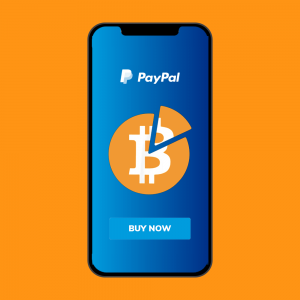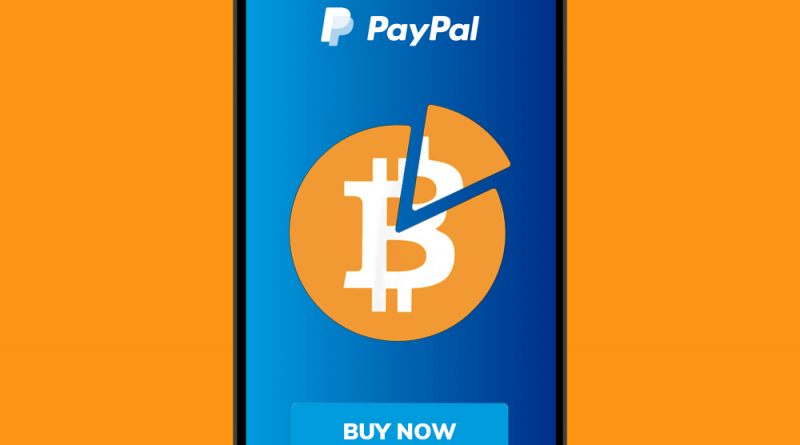PayPal Sparks a New Cryptocurrency Trend for the Digital Wallet
Patrick Ritter
Trending Writer

The digital payment giant PayPal (PYPL) announced on October 21st that it is expanding its market by allowing its 346 million worldwide users to use their digital wallet to buy, hold, and sell Bitcoin and other cryptocurrencies. Starting in 2021, PayPal users will also use their cryptocurrency as a payment method to PayPal’s 26 million merchants.
The Verge reports that PayPal’s CEO, Dan Schulman, said, “The shift to digital forms of currencies is inevitable, bringing with it clear advantages in terms of financial inclusion and access…Our global reach, digital payments expertise, two-sided network, and rigorous security and compliance controls provide us with the opportunity, and responsibility, to help facilitate the understanding, redemption and interoperability of these new instruments of exchange.”
The news was met with excitement from the cryptocurrency community as Bitcoin prices rose by 5% (above the $12000 USD threshold) after the announcement was made. According to CNN, PayPal’s stock price also rose sharply following the opening bell on October 21st.
PayPal is not the first digital wallet to expand into the cryptocurrency market. In 2018, the Jack Dorsey led PayPal competitor, Square (SQ), announced their support of Bitcoin in their digital wallet Cash App and have since seen over $875 million in estimated revenue from the use of cryptocurrency. Many at Forbes are citing the success of Cash App as one of the motivations for PayPal’s expansion into the crypto market as well as providing users access to a rapidly growing digital currency.
The use of cryptocurrency, such as Bitcoin, has been met with much controversy due to the volatility of its prices and security concerns due to its lack of traceability, causing many to demand further regulation on the currency. For this reason, according to BBC, PayPal was granted a “Bit license.” This is the first of its kind ever issued by the New York Department of Financial Services as permission to use cryptocurrency as a tool in their digital wallet.
While PayPal is making valuable strides in the digital payment marketplace, many warn that there are still steps to be taken to put them on the same playing field as their competitors. For starters, PayPal does not grant its users ownership of private keys, which is the string of text and number data that allows users to transfer crypto holdings. This, according to Forbes, goes against one of the sayings of the cryptocurrency community: “Not your keys, not your coins.
Additionally, PayPal is not yet allowing its users to withdraw or deposit their cryptocurrency. Instead, according to CoinDesk, when digital assets are purchased, they remain in the user’s account until they are sold. Experts also warn against the exchange of cryptocurrency using digital wallets altogether, as many customers will enter a risky market with little knowledge of its function. This could lead to harmful outcomes due to the volatile nature of cryptocurrency.
PayPal will be implementing features that educate its users on cryptocurrency so that they can better understand the market. However, David Gerard, author of Attack on the 50 Foot Blockchain, said that investing in Bitcoin is like “gambling on penny stocks.” According to BBC, he also stated that the use of cryptocurrency trading with PayPal will likely not expand beyond current crypto holders and that he is “baffled that PayPal would offer this.”
While PayPal may be moving slowly, there are plans to optimize the user’s cryptocurrency experience and provide millions with access to the exchange of digital holdings. Beginning in 2021, PayPal users will be able to convert their cryptocurrency balance to fiat money with “certainty of value and no incremental fees,” according to Coin Desk. This will also allow merchants to convert their digital holdings to cash with no extra fees or charges.
In a world that is constantly becoming more reliant on software and digital interfaces, PayPal’s expansion into the cryptocurrency market is just one of many initiatives being taken to shrink the consumer’s world down to the size of their fingertips.
Contact Patrick at ritterpa@shu.edu

